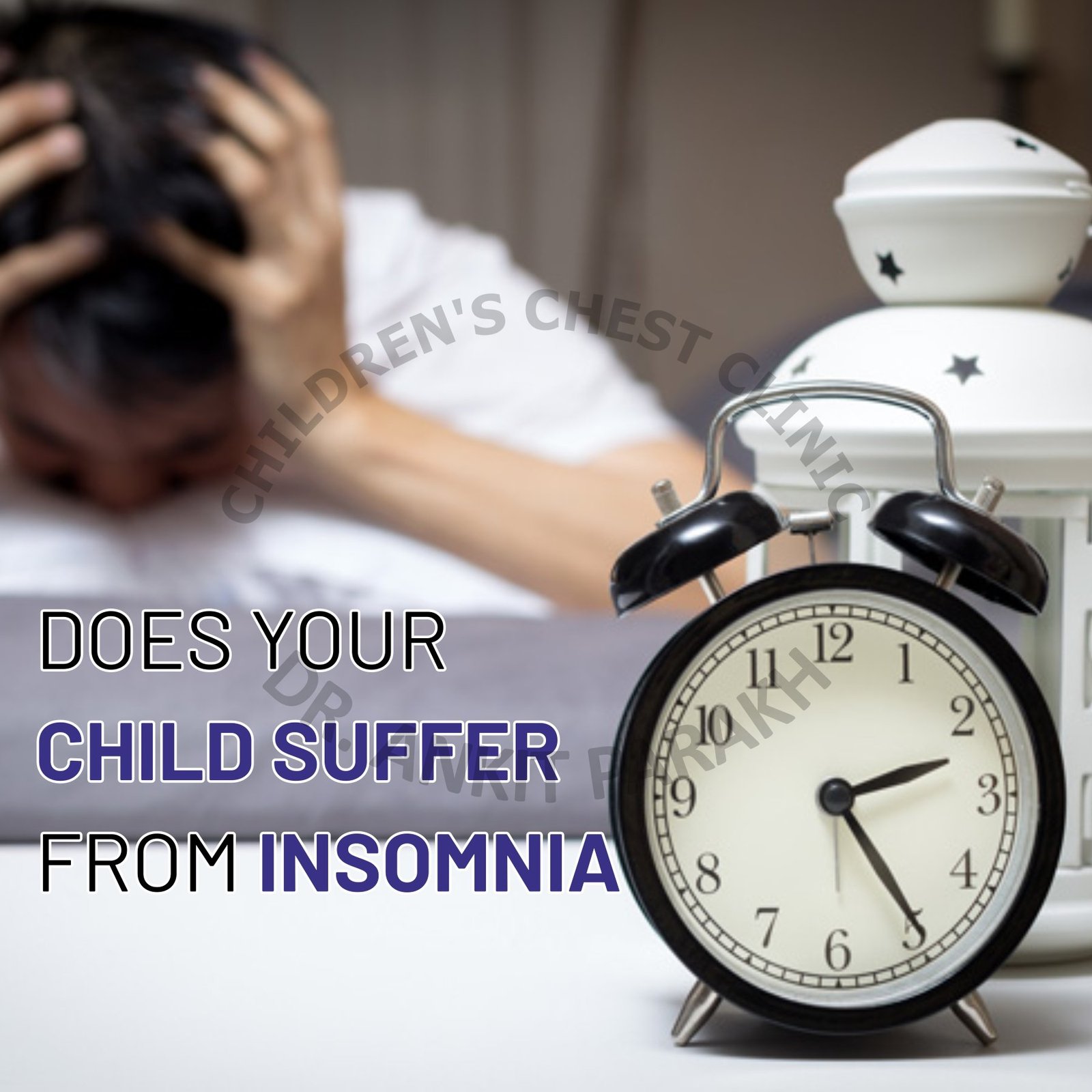Insomnia in Children: Causes, Investigations, and Treatment
Sleep plays a critical role in the overall growth and development of children. However, many children experience difficulties falling asleep, staying asleep, or waking up too early — a condition commonly referred to as insomnia in children.
Children and adolescents can have different symptoms of insomnia. Children can have sleep onset insomnia where they have difficulty in falling asleep (longer than 30 minutes) or wake up in the middle of the night and then unable to get back to sleep for prolonged periods or wake up too early in the morning.
Insomnia not only impacts the child’s daily functioning but can also affect the entire family. Children with insomnia can get sleepy during the day leading to problems with daytime functioning. Children can have problems with concentration, memory and school performance. There can also be behavioral health issues like depression or problems concentrating (may resemble ADHD). This section details the causes, investigations, and treatment options for insomnia in children.

What Causes Insomnia in Children?
Insomnia in children can be attributed to various factors, including:
Behavioral Causes:
- Inconsistent bedtime routines.
- Excessive screen time before sleep.
- Resistance to bedtime or dependence on parents for sleep initiation.
Psychological and Emotional Issues:
- Anxiety or stress related to academics, relationships, or life changes.
- Depression, bipolar or other mood disorders.
Medical Conditions:
- Sleep-related disorders like obstructive sleep apnea or restless leg syndrome.
- Chronic conditions such as GERD, asthma or eczema causing discomfort.
- Neurodevelopmental disorders like ADHD , Asperger’s syndrome, autism and mental disabilities can also be an important cause of insomnia.
- Certain medications such as steroids, antidepressants, ADHD medicines can also lead to insomnia in children.
Environmental Factors:
- Noisy or uncomfortable sleep environment.
- Sharing a bedroom with siblings or family members with different sleep patterns.
Dietary and Lifestyle Factors:
- Consumption of caffeine or sugary foods close to bedtime.
- Lack of physical activity during the day.
Investigating Insomnia in Children
Proper evaluation is crucial to identify the underlying cause of insomnia. Here are some key steps and tools used in the investigation process:
- Detailed History: A thorough discussion about the child’s sleep habits, daily routine, and any stressors or medical conditions is vital.
- Sleep Diary: Parents may be asked to maintain a two week sleep diary to document the child’s sleep patterns, including bedtimes, wake-up times, and nighttime awakenings.
- Actigraphy: This wrist-worn device tracks sleep and wake cycles over several days to provide objective data about the child’s sleep patterns.
- Polysomnography (Sleep Study): In cases where a medical condition like obstructive sleep apnea or restless legs syndrome is suspected, a detailed sleep study may be performed.
- Psychological Assessment: If emotional or psychological factors are suspected, a consultation with a psychologist or counselor may be recommended.
Treatment for Insomnia in Children
The treatment of insomnia in children depends on its underlying cause and may include the following approaches:
Behavioral Interventions:
- Establishing a Consistent Bedtime Routine: Regular sleep and wake times can help regulate the child’s internal clock.
- Sleep Hygiene Practices: Encouraging a calming pre-sleep routine, such as reading a book, avoiding screens, and keeping the bedroom dark and quiet.
- Positive Reinforcement: Rewarding good sleep behavior can motivate children to follow bedtime rules.
Cognitive Behavioral Therapy for Insomnia (CBT-I):
- This evidence-based therapy helps children and parents address negative thoughts or behaviors contributing to sleep difficulties.
Treatment of Underlying Medical Issues:
- Managing conditions like asthma, eczema, or sleep apnea often resolves sleep difficulties.
Medications (Rarely Used):
- In severe cases, a pediatrician may recommend medications such as melatonin under strict medical supervision.
Parental Education and Support:
- Parents should be educated about realistic sleep expectations and ways to create a supportive sleep environment.
Insomnia in children is a manageable condition that requires identifying the root cause and implementing targeted interventions. Early treatment can improve the child’s sleep quality and overall well-being. If your child is struggling with sleep difficulties, consult a pediatric sleep specialist for guidance.
Conclusion
Sleep Disorders in children
Frequently Asked Questions (FAQs)
1. What are the signs of insomnia in children?
Signs include difficulty falling asleep, frequent nighttime awakenings, waking up too early, and feeling tired or irritable during the day.
2. Can screen time before bed cause insomnia in children?
Yes, the blue light from screens can suppress melatonin production, delaying sleep onset.
3. How can parents help children with insomnia?
Parents can establish consistent bedtime routines, encourage sleep hygiene practices, and address any emotional or physical discomforts.
4. When should I consult a doctor about my child’s insomnia?
If sleep difficulties persist for more than a few weeks, affect daytime functioning, or are accompanied by medical symptoms, seek professional help.
5. Are sleep medications safe for children?
Sleep medications are rarely used for children and should only be considered under a doctor’s supervision. Behavioral interventions are usually the first line of treatment.



